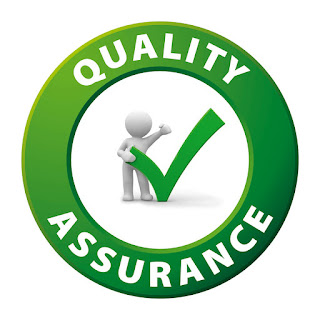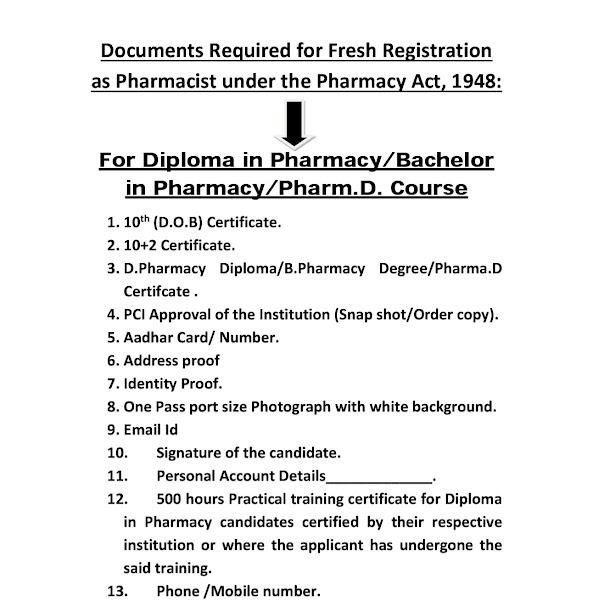Career Opportunities
for Pharmacy Student
It is an incredibly exciting time to pursue a career in
pharmacy and students graduating from the Texas A&M Rangel College of
Pharmacy have a wide-range of career opportunities available to them. To
learn more about these opportunities, please see below.
The majority of pharmacy
graduates become pharmacists but there are also options within academia,
regulatory bodies and the pharmaceutical industry
Job
options
Jobs directly related to
your degree include:
Jobs where your degree
would be useful include:
Remember that many
employers accept applications from graduates with any degree subject, so don't
restrict your thinking to the jobs listed here.
· Hospital pharmacy
Hospital pharmacists
advise health care providers and patients on the safe and effective use of
medications and are responsible for choosing, preparing, storing, compounding,
and dispensing medications. Other responsibilities include monitoring
medication use, implementing hospital regulations related to medication, and
other administrative tasks. Individuals interested in hospital pharmacy
typically complete a pharmacy residency program and should consider joining the
Student Society of Health-System Pharmacists.
· Retail pharmacy
The majority of
pharmacists work in retail pharmacy. Retail pharmacists dispense and
verify medications, counsel patients on medication use and general health
topics, and recommend over-the-counter products. Additionally, depending on the
pharmacy, retail pharmacists may vaccinate patients or offer medication therapy
management to patients with chronic disorders (e.g., diabetes) or
both. Retail pharmacists manage pharmacy technicians and may choose to
pursue a management track.
· Independent pharmacy
In addition to the
responsibilities described under retail pharmacy, pharmacists working at an
independent pharmacy may compound medications and, depending on the size of the
pharmacy they own, they may manage finances, order and take inventory of items
sold at the pharmacy, manage personnel, make payroll, etc.
Individuals interested in owning a pharmacy should consider the Pharm.D./MBA dual degree program offered by
the Texas A&M Rangel College of Pharmacy and joining the National Community
Pharmacists Association (NCPA).
Research
scientists can be found in many professional fields, including biology,
chemistry, computer science, environmental science, medicine, physics,
anthropology, history, political science and sociology. They make hypotheses,
collect data, and interpret results in order to answer questions about humans
and the natural world. Research scientists work at colleges and universities,
for non-profit organizations, government agencies, and private research and
development companies. These workers contribute to knowledge in the fields of
the natural sciences, medical science, computer science, environmental science
and the social sciences.

|
Education
|
Master's
or doctoral degree in professional field
|
|
Job
Skills
|
Naturally
curious, analytical, detail-oriented, ability to communicate well orally and
in writing
|
|
Median
Annual Salary (2015)*
|
$67,640
for environmental scientists; $82,240 for medical scientists
|
|
Job
Outlook (2014-2024)*
|
11%
growth for environmental scientists; 8% for medical scientists
|
* Required Education
Research scientists have
typically earned master's or doctorate degrees in their specific fields of
study, like physics, biology or chemistry. Most research scientists have
completed postgraduate degrees in their field. Research scientist positions at
colleges and universities generally require Ph.D.s, while master's degrees are
sometimes acceptable for jobs in the public and private sectors.
* Skills Required
Research scientists are
naturally inquisitive. Their work requires analytical skills and attention to
detail in order to design repeatable procedures and record results accurately.
Research scientists report their findings in publications and oral
presentations, requiring excellent communication and writing skills.
* Career and Economic Outlook
Research scientists earn
diverse salaries, based on their areas of specialty and level of experience. In
2015, environmental scientists and specialists earned median annual wages of
$67,640, according to the U.S. Bureau of Labor Statistics (BLS). During that same
time, medical scientists earned median annual wages of $82,240.
ü * Career outlooks
also vary according to
the specific fields of research science. According to the BLS, environmental
scientists are predicted to have better-than-average job growth of 11% from
2014-2024, and medical scientists are also expected to see average growth
during that time at 8%.
· Clinical research
QuintilesIMS (NYSE:Q) is a leading integrated information and
technology-enabled healthcare service provider worldwide, dedicated to helping
its clients improve their clinical, scientific and commercial results. Formed
through the merger of Quintiles and IMS Health, QuintilesIMS’s approximately
50,000 employees conduct operations in more than 100 countries. Companies
seeking to improve real-world patient outcomes and enhanced clinical trial
outsourcing through treatment innovations, care provision and access can
leverage QuintilesIMS’s broad range of healthcare information, technology and
service solutions to drive new insights and approaches. QuintilesIMS provides
solutions that span clinical to commercial bringing clients a unique
opportunity to realize the full potential of innovations and advance healthcare
outcomes.
Whether you’re beginning or continuing your career as a CRA, this
role is an ideal stepping-stone. You’ll have training and development to plan
and progress your career in the direction you choose. And you won’t do it alone
– you will have dedicated mentoring and receive structured quarterly reviews on
performance, promotion and bonus awards.

Award winning and innovative, we’ll give you access to cutting-edge in-house
technology, allowing you to work on global projects but with a regional / home
state travel remit, so no need for national travel in certain countries. You’ll
be building a smart and flexible career with no limits.
While projects vary, your typical responsibilities might include:
Performing site selection, initiation, monitoring and close-out visits, plus
maintaining appropriate documentation Supporting the development of a
subject recruitment plan Establishing regular lines of communication plus
administering protocol and related study training to assigned sites
Evaluating the quality and integrity of site practices – escalating
quality issues as appropriate Managing progress by tracking regulatory
submissions, recruitment, case report form (CRF) completion, and data query
resolution You will need to be comfortable collaborating and communicating
with a variety of colleagues and customers. Ideally, you will also have a good
basic knowledge of applicable clinical research regulatory requirements.

You should have:
A Bachelor's degree in a health care or other scientific
discipline or educational equivalent Successful completion of a CRA Trainee
Program or at least three months of on-site monitoring experience
Alternatively, you should have an equivalent combination of education, training
and experience If you want to make an impact in the global research
market, where we are working to make a real difference in patient health, we
ask you to apply now and join our team.
· Managed care
Managed care pharmacists
work directly with other health care professionals to provide medication therapy
management, while considering the pharmacoeconomic impact on patients. They
provide a broad range of clinical services including monitoring patient safety
and outcomes, managing formularies, and patient education. Managed care
pharmacists typically work for health plans and pharmacy benefit management
companies. Residency opportunities are available to individuals interested in
managed care and interested individuals should consider joining the Academy of
Managed Care Pharmacy.
· Industry
There are a broad range
of opportunities available to pharmacists in the pharmaceutical industry.
They can participate in research and development, quality assurance, drug
information, sales, marketing, regulatory affairs or clinical trials.
Individuals interested in working in the pharmaceutical industry typically
participate in postgraduate fellowship programs available at many
pharmaceutical companies.
Opportunities in
Industry department
· Q/A
· Q/C
· Production
· Material handling
· Packaging department
· Consultant pharmacy
Pharmacy consultants
typically work with long-term care facilities and review drug regimens, offer
pharmacokinetic dosing services, patient counseling, and therapeutic drug
monitoring. Long-term care facilitates include nursing homes, mental
institutions, home health agencies, hospice care, correctional institutions,
rehabilitation centers, and adult day care centers.
· Academia
Pharmacists interested
in training the next generation can pursue a career as faculty member at a
college or school of pharmacy. Pharmacy faculty teach, conduct research,
participate in public service, precept students, and contribute to patient
care. Individuals interested in a career in academia should consider
residencies with significant teaching components.
· Nuclear pharmacy
Nuclear pharmacists
compound and dispense radiopharmaceutical for use in medical procedures.
Individuals interested in nuclear pharmacy must complete a training program
after earning a Doctor of Pharmacy degree and should consider residency
programs that focus on nuclear pharmacy. Students enrolled at the Texas
A&M Rangel College of Pharmacy may choose to enroll in an elective nuclear
pharmacy rotation in the fourth year of the Pharm.D. program.
· Government agencies
The National Institutes
of Health, FDA, US Centers for Disease Control and Prevention, US Department of
Homeland Security, Federal Bureau of Prisons, Veterans Administration, and
Armed Forces all employ pharmacists. Pharmacists working with a governmental
agency engage in a wide range of tasks, including patient care, biomedical and
epidemiological research, reviewing new drug applications, and developing and
administering health care policy.
Coming soon………
 them that your products or services (rather than those of
competitors) can best satisfy those needs; closing the sale by agreeing the
terms and conditions; and providing an after-sales service. As a medical sales
representative, you'll do all of this and more.
them that your products or services (rather than those of
competitors) can best satisfy those needs; closing the sale by agreeing the
terms and conditions; and providing an after-sales service. As a medical sales
representative, you'll do all of this and more. them that your products or services (rather than those of
competitors) can best satisfy those needs; closing the sale by agreeing the
terms and conditions; and providing an after-sales service. As a medical sales
representative, you'll do all of this and more.
them that your products or services (rather than those of
competitors) can best satisfy those needs; closing the sale by agreeing the
terms and conditions; and providing an after-sales service. As a medical sales
representative, you'll do all of this and more.















